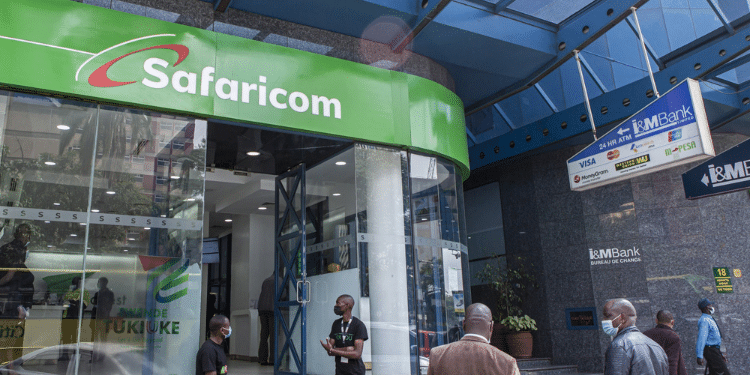Loan scams in Kenya have evolved from simple phone cons to sophisticated digital traps that prey on desperate borrowers.
Whether you’re a student looking for tuition support, a small business seeking working capital, or someone handling an emergency, you’re a potential target.
The rising number of fake loan apps and unlicensed digital lenders in the country is alarming, and many victims only realise they’ve been duped after it’s too late.
This article offers an in-depth guide on how to spot loan scams in Kenya, key loan fraud red flags, and the best ways to avoid loan fraud in 2025.
The Rise of Loan Scams in Kenya
In recent years, the promise of fast, no-collateral loans has made digital lending extremely attractive. But with this rise comes a darker reality: fake loan apps, unlicensed loan apps in Kenya, and online fraud targeting both individuals and businesses.
These scams often operate on popular social media platforms, fake websites, and even through SMS and WhatsApp.
What makes these scams particularly dangerous is their ability to appear legitimate. Some mimic trusted brands, use official-looking documentation, or promise “pre-approved” loans, all while collecting personal data and upfront fees from unsuspecting Kenyans.
Loan Fraud Red Flags in Kenya
Understanding the common loan scam warning signs can protect you from becoming a victim. Here are some clear red flags of fake loan apps in Kenya:
1. Upfront Payment Requests
Any lender that asks for fees for processing, registration, or insurance before disbursing your loan should be considered suspicious. Legitimate institutions deduct fees from the loan itself or at the time of repayment.
2. Unlicensed Operations
Many unlicensed loan apps in Kenya are not registered with the Central Bank of Kenya (CBK). Always cross-check the lender’s name against the CBK’s official list of approved Digital Credit Providers.
3. No Physical Address or Customer Support
A vague or missing office location and unresponsive customer service are classic signs of fake lenders in Kenya. Trustworthy lenders maintain open communication channels and provide clear contact details.
4. Too-Good-To-Be-True Terms
Be wary of offers like “zero interest”, “guaranteed approval”, or “no credit checks”. Scammers use attractive terms to lure victims into sharing personal information or paying upfront fees.
5. Pressure to Act Immediately
Fraudulent lenders often create false urgency, warning you that the offer will expire in hours. Real lenders give borrowers time to review terms and make informed decisions.
How to Avoid Loan Scams in Kenya
The best protection is awareness. Here’s how to avoid loan scams in Kenya and borrow safely:
Do Your Research
Before applying, verify if the lender is licensed. Check reviews on trusted platforms and ask for recommendations. Loan scams for small businesses in Kenya often target those unfamiliar with digital lenders, so doing due diligence is critical.
Use Trusted Platforms
Stick to well-known financial institutions or safe loan apps in Kenya verified by regulatory authorities. Avoid clicking on suspicious links shared via social media or text messages.
Protect Personal Data
Avoid sharing ID numbers, bank details, or personal documents unless you’re sure of the lender’s legitimacy. Scammers often harvest this data for identity theft or future fraud.
Educate Yourself and Others
Loan scam prevention in Kenya depends on public awareness. Share warnings with friends, students, and family. Groups particularly vulnerable include first-time borrowers and those seeking emergency loans.
Report Suspicious Activity
If you come across a suspicious lender or fake loan app in Kenya, report it to the Communications Authority of Kenya, CBK, or the DCI’s cybercrime unit.
Loan Scams to Avoid in Kenya in 2025
This year, the scams are becoming more refined. New tactics include fake WhatsApp groups posing as customer support agents, cloned websites that mirror real loan providers, and phishing emails promising fast disbursement.
The most targeted groups in 2025 so far include:
- Students: Scammers exploit their urgency to pay school fees.
- Micro-entrepreneurs: Quick loan offers for inventory purchases lure many into traps.
- Salaried employees: Fake payroll loans promising instant approval are on the rise.
READ ALSO:
How to Boost Your Credit Score in Kenya and Qualify for Bigger Loans
Safe Borrowing in Kenya: What You Can Do
Here are the best ways to avoid loan fraud in Kenya:
- Use only CBK-regulated lenders.
- Read all terms and conditions carefully.
- Never pay fees before receiving a loan.
- Seek financial advice if unsure.
- Avoid apps or lenders that operate solely on WhatsApp or Telegram.
For loan scam protection for students in Kenya, educational institutions and student unions should run awareness drives. Likewise, small businesses should be offered financial literacy training to recognise the traits of a safe loan provider.
Final Thoughts
Loan scams in Kenya are not just a digital inconvenience; they are a real financial threat. But with vigilance and the right information, you can protect yourself and others. Always question offers that seem too easy or too urgent, and never share sensitive information with unknown lenders.
Whether you’re looking to avoid fake loan apps for emergencies or simply want to practise safe borrowing in Kenya, stay informed and sceptical. The cost of ignorance could be far higher than a missed opportunity.
Ronnie Paul is a seasoned writer and analyst with a prolific portfolio of over 1,000 published articles, specialising in fintech, cryptocurrency, and digital finance at Africa Digest News.







Leave a Reply